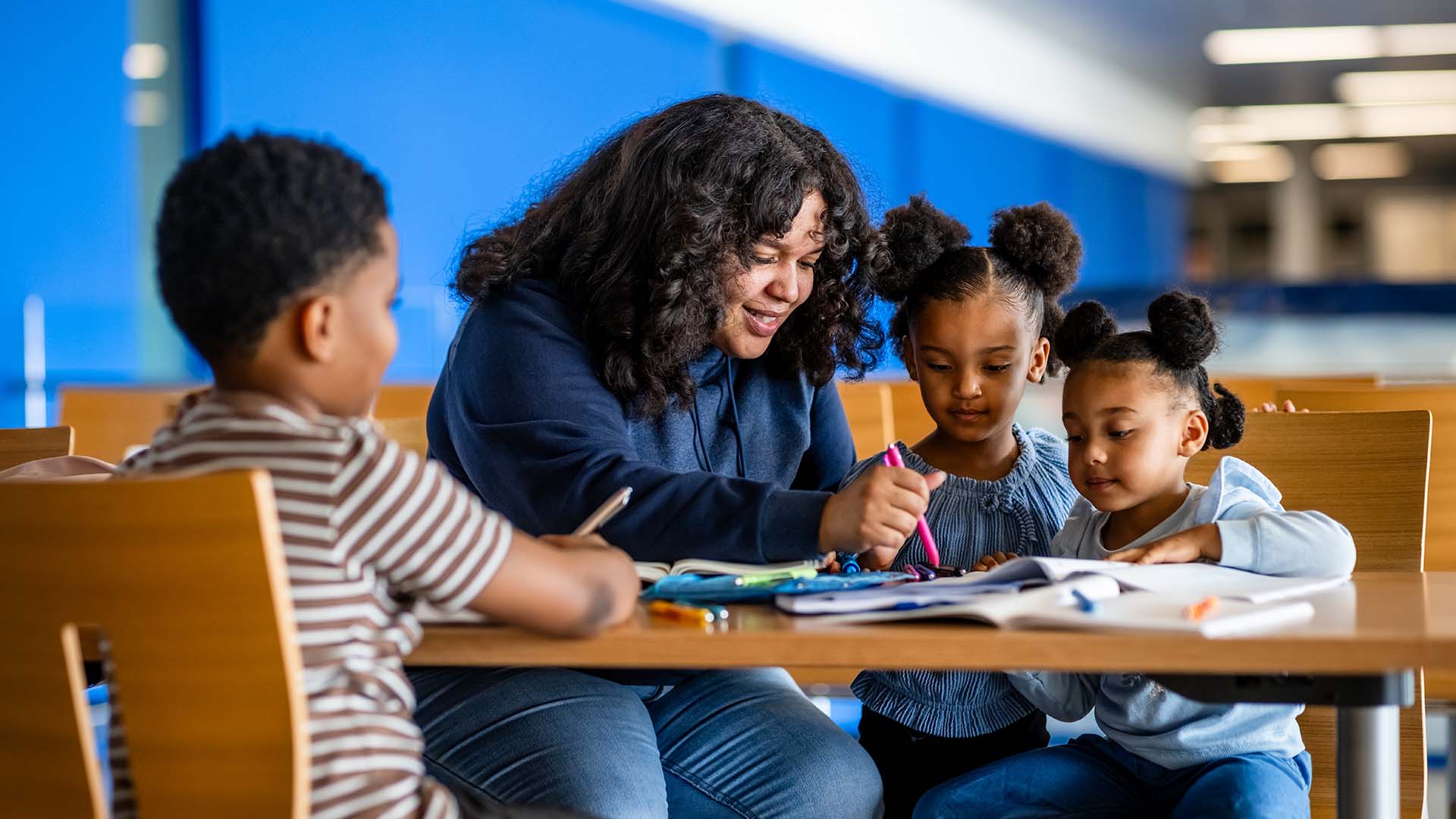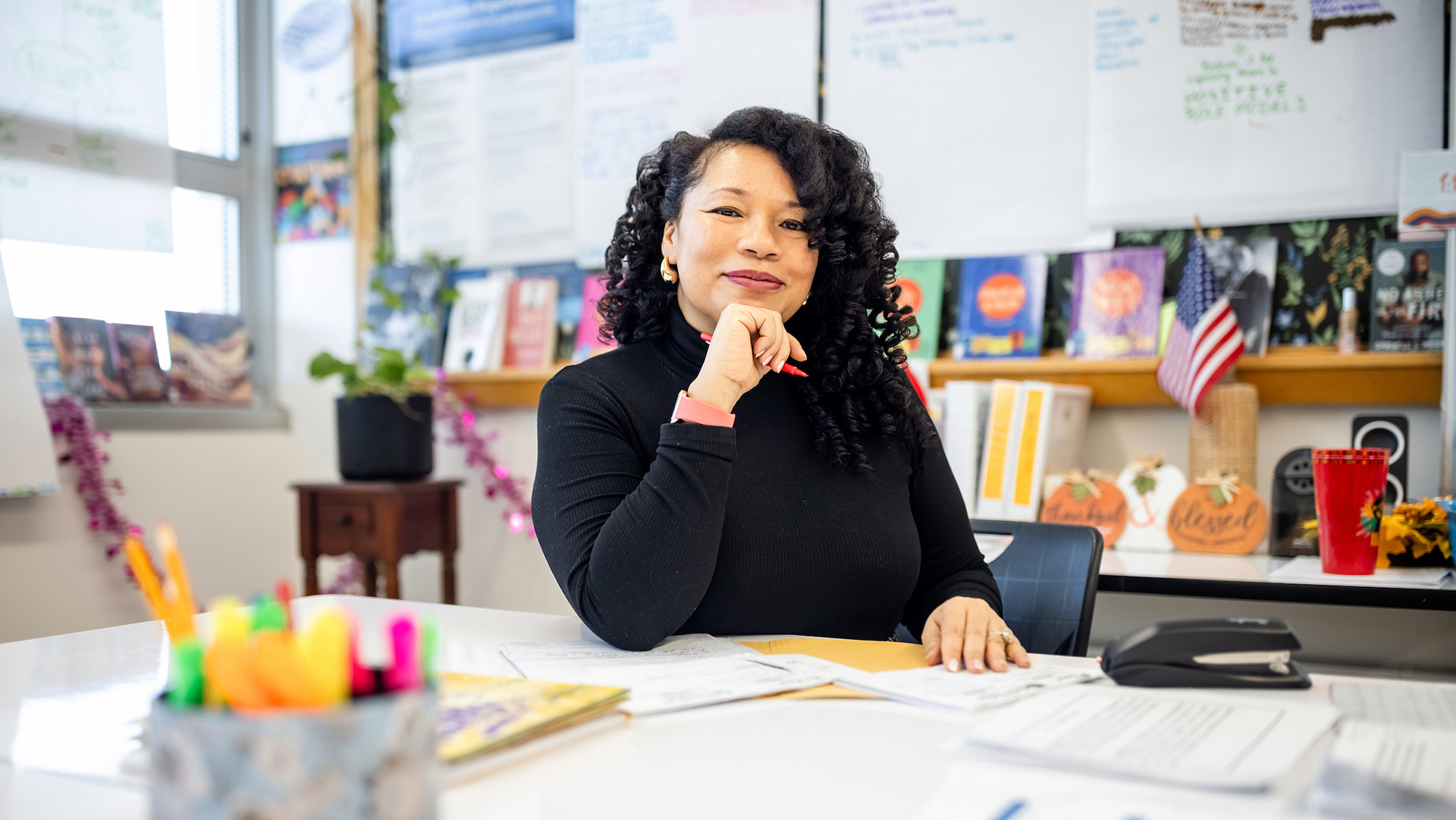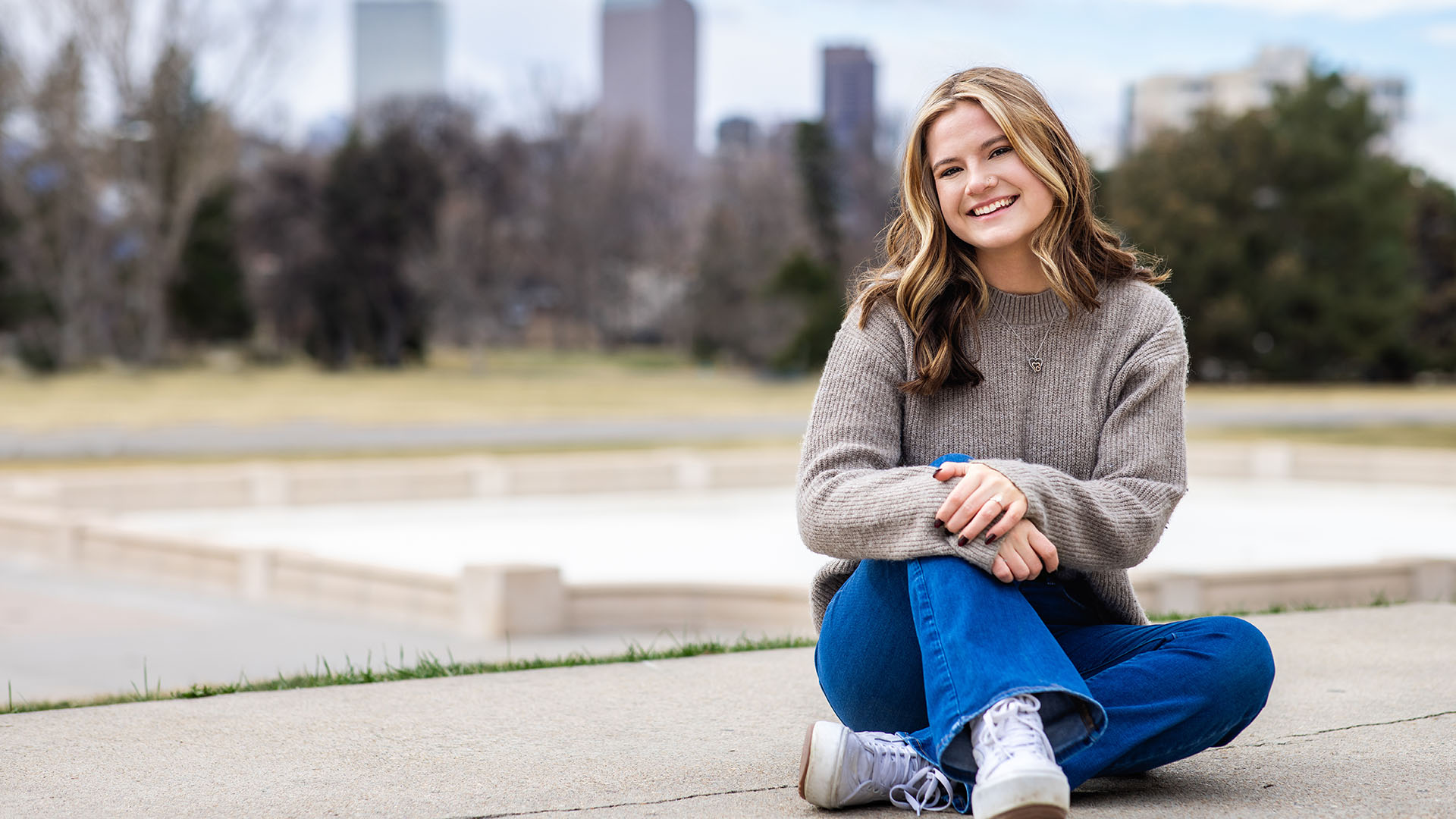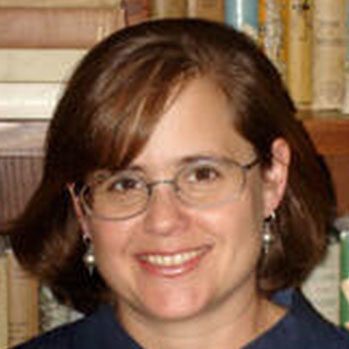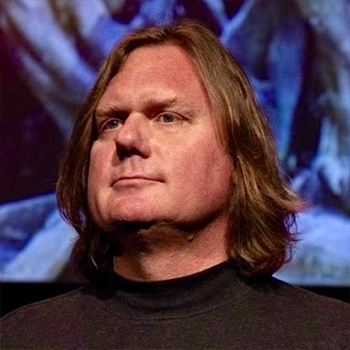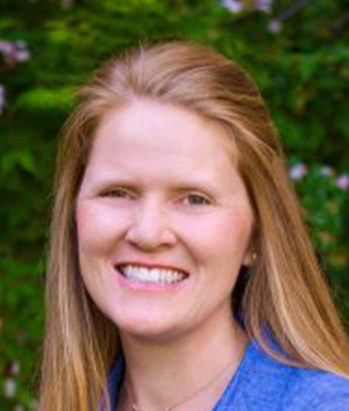Oh, the humanities: What’s lost without them?
Humanities play a critical role as society grapples with artificial intelligence, migration, climate change and more.
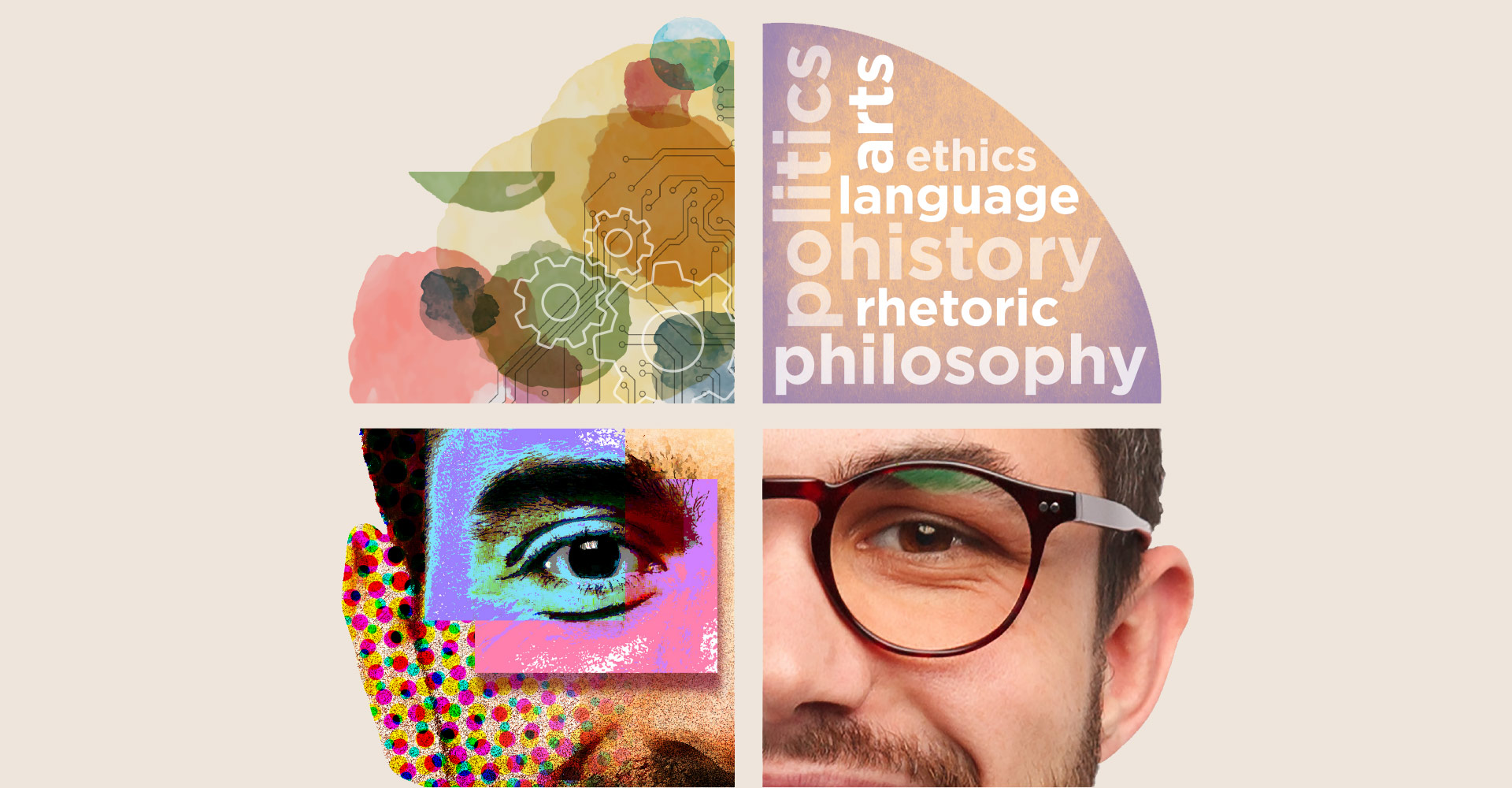
How many books have you read about robots taking over the world? Or movies and TV shows about technology eroding our humanity?
Science fiction gives us a glimpse into a world without humanity, explains Janine Davidson, Ph.D., president of Metropolitan State University of Denver.
“Science-fiction writers get it. They’re philosophically, emotionally and socially extrapolating what a world looks like where people use technology and artificial intelligence without thinking about what that might actually do to your society, to your people, to your very humanness,” she says. “Higher education is more important than ever because our society is getting so complex – we have got to educate, not just train, the next generation to cope with the trends that are coming at us.
“It’s the liberal arts and humanities that help us make sense of what’s going on in this world.”
Connecting people
Arrow Electronics executive Alan Bird says his company’s forays into AI demand ethical decision-making. Bird is the president of Global Supply Chain Services for Arrow.
“Artificial intelligence is built on programming into software and hardware. The reality is, the person that’s doing that can either write that program for good or for bad,” Bird says. “You’re making decisions on behalf of people that have profound effects. In addition to Facebook, Twitter and Google Search, AI is being used in medicine, in logistics, in almost every discipline in the world and will only become more prominent.”
The National Endowment for the Humanities’ most prestigious honor goes to the Jefferson Lecturer, and last year’s lecturer was a Harvard-trained physician with a doctorate in English literature. Rita Charon is a pioneer in the field of medical humanities, and her lecture focused on how the humanities allow doctors to see the suffering in patients and better understand how to help them.
MSU Denver history professor Matt Makley says historical context is essential in any field.
“Science and disciplines within science tend to operate in their respective silos, and often I think it’s helpful to have a broad-thinking historian who can connect scientific movements and paradigms with particular moments,” Makley says. “Moreover, the humanities connect us, as a civil society, to the questions and dialogues that have fueled inquiry across disparate times and cultures.
“Study of the humanities helps us wrestle with fundamental questions about the human experience and our place in the cosmos.”
Arlene Sgoutas, interim dean of MSU Denver’s College of Letters, Arts and Sciences, sees the impact of dehumanization in the news today.
“Why study the humanities? Perhaps the evidence is in our times. It might be that the more we devalue the humanities, the less empathic and compassionate we become,” Sgoutas says. “When I think about the ongoing displacement of peoples, the increasing devastation to the climate and the rising violence to targeted communities … the more I think we need the humanities, so we do not disconnect from the suffering of other people.”
Humanities in action
The Denver Project for Humanistic Inquiry, or D-phi, is MSU Denver’s effort to enrich intellectual and cultural life in the community. Associate professor of philosophy Adam Graves founded the organization in 2015 to put the humanities to work.
“We mobilize the resources of humanities faculty at MSU Denver to partner with cultural institutions throughout the city to add value to the content that they already have,” Graves says. “We also bring humanities scholars, their expertise, to topics that are both timely and timeless in nature by partnering with these cultural institutions.”
Such events include a discourse on computers and consciousness at the Denver Museum of Nature & Science, which included NASA engineers, computer scientists and philosophers discussing the moral implications of the “smart” machines that play a prominent role in modern life. Another event at a brewery featured a musician performing an album based on a novel while a professor offered historical analysis of the book’s inspiration.
D-phi’s community-based engagement is unique among university humanities centers.
“The partnerships that we have are not arbitrary. Our society as a whole is in dire need of the kinds of questioning, the kinds of thoughtful deliberation, that are distinctive to the humanistic disciplines,” Graves says. “It’s ironic that the humanities find themselves today in a defensive position, when in some sense, what we have to contribute is perhaps of greater value today than any time in our past.”
In an age of endless information and rapid change, the humanities provide frameworks to interpret and understand what it means to be human.
“You can’t pose the question, ‘What is the value of the humanities?’ without engaging in the very thing whose existence seems to be in question. The fact that we ask these kinds of questions of ourselves indicates that the humanities do in fact have value,” Graves says.
So why study the humanities? It’s simple: If you’re inquiring as to whether inquiry has value, haven’t you already answered the question?

